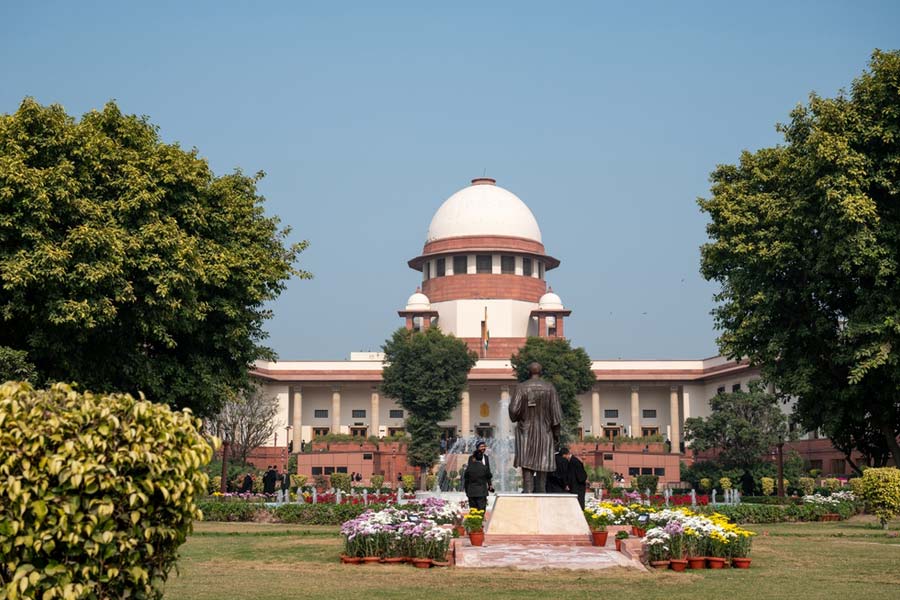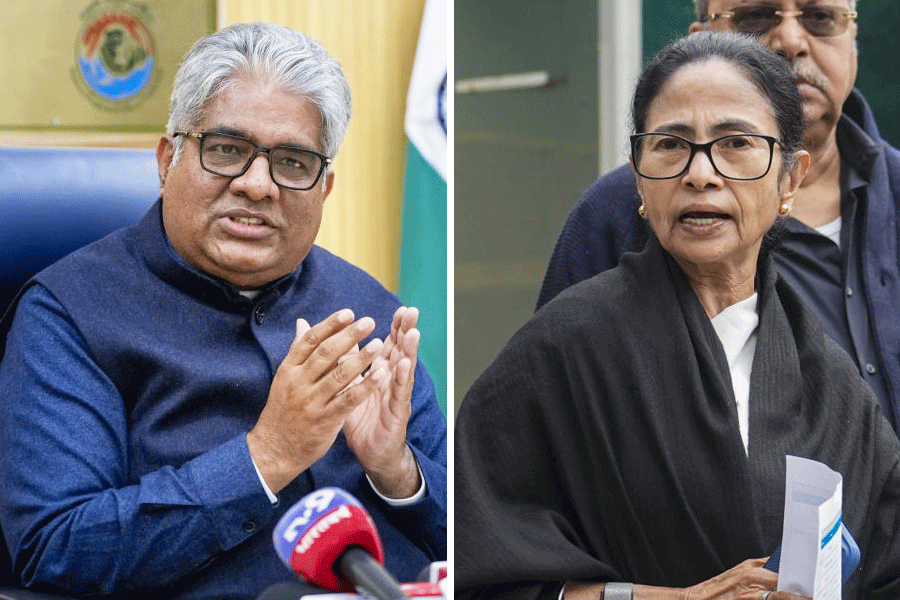The Supreme Court has sought the Uttar Pradesh government’s response on a plea challenging an Allahabad High Court judgment which held that quota benefits could not exceed the 50 per cent cap even in designated “special component plan colleges”.
Special component plan colleges are set up by the government with funds and schemes earmarked for SC/ST communities.
A bench of Chief Justice B.R. Gavai and Justice K. Vinod Chandran issued the notice on the appeal filed by Yuvaraj Singh challenging the high court ruling that reservations in educational institutions are bound by the 50 per cent ceiling imposed by the top court in the Indra Sawhney case.
There are at least four colleges in Uttar Pradesh that cater to Dalit students. Quota benefits have reportedly gone well beyond 90 per cent in these colleges.
When CJI Gavai wondered how the total reservation could exceed 90 per cent, counsel Mohan Gopal, appearing for the appellant, tried to reason that the 50 per cent ceiling should not apply to “special component plan colleges” in the state.
The CJI declined Gopal’s request for staying the high court’s September 4 judgment, but agreed to examine the larger issue of whether reservation could breach the 50 per cent cap.
A nine-judge constitution bench had, in a ruling in the 1992 Indra Sawhney case, capped quota benefits at 50 per cent. The bench had made it clear that the cap could only be breached when the State demonstrated an “extraordinary” circumstance warranting such an action.
However, states such as Tamil Nadu, Telangana and Maharashtra have flouted the cap, with the Union Territory of Ladakh joining the list recently.
Several other benches of the Supreme Court had cautioned states against violating the quota ceiling.
On May 5, 2021, a five-judge constitution bench dealing with the 16 per cent Maratha reservation row had ruled: “When the constitution bench in Indra Sawhney held that 50 per cent is the upper limit of reservation under Article 16(4), it is the law which is binding under Article 141 and to be implemented.”
The five-judge bench had struck down as “unconstitutional” the Maharashtra State Reservation for Socially and Educationally Backward Classes (SEBC) Act, 2018.
The impugned law had provided 16 per cent reservation for Marathas and 5 per cent for Muslims, taking their total quota to over 70 per cent.
Under Article 141 of the Constitution, the law declared by the Supreme Court is binding on all courts and under Article 14, “all civil and judicial authorities to act in aid of the Supreme Court”.
The five-judge constitution bench’s verdict was based on its interpretation of the Indra Sawhney judgment and the earlier 13-judge bench ruling in the Keshevananda Bharati case relating to the powers of the legislature, executive and judiciary.










